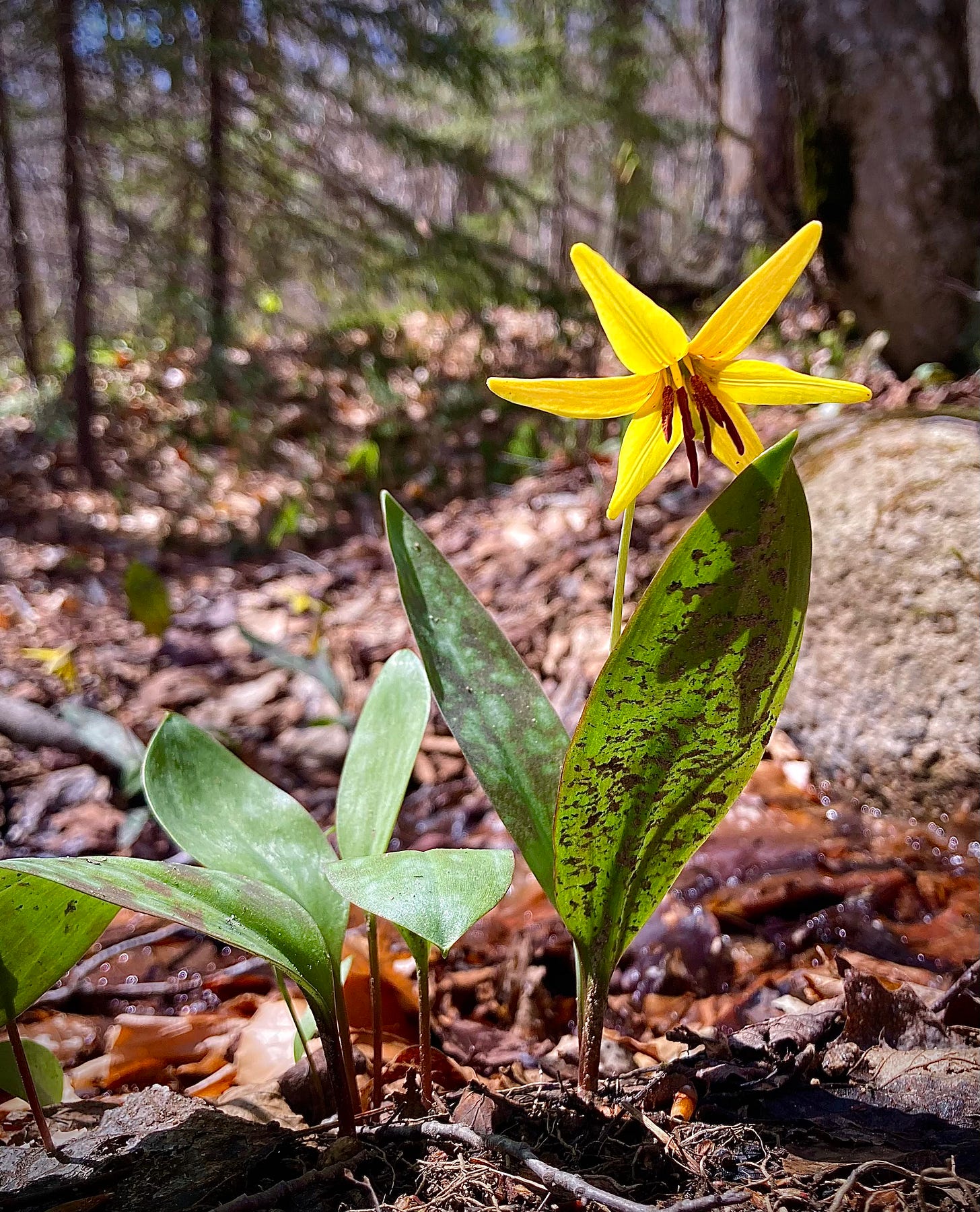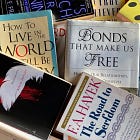Are We Oblivious to How Interconnected the World Is?
Philosophy can provide a practical guide to living a principled and purposeful life.
It’s been over a year since our formal study of Meditations by Marcus Aurelius at Mindset Shifts U. Do you have a favorite among the many evocative passages in Meditations? Currently on my short list of those I return to is 2.17.
First, Marcus reminds us of human existence: “The duration of a man’s life is merely a small point in time; the substance of it ever flowing away, good fortune is uncertain and fame is unreliable.” In short, “Our animal existence is like a dream or smoke; life is a struggle and a journey through unfamiliar territory.”
Having set up the problem, Marcus asks, "So, what can guide us honorably through life and accompany us in our future journey?”
His answer: “Only philosophy.” Not our feelings. Not mere exhortations. Not another technique or strategy. “Only philosophy.”
He elaborates, “Philosophy involves keeping our inner divinity free from affronts and injuries, rising above pleasure and pain, and acting with sincerity and integrity. It means being unaffected by others' actions, embracing whatever comes our way with acceptance as if it comes from the source of our being, and facing death with calm assurance, viewing it as merely the dissolution of the elements that make up every living being.”
Marcus's philosophy wasn't academic. It was a practical guide to living a principled and purposeful life.
In other words, as David Reynolds wrote, “It isn't enough to ponder, to ruminate, to intellectualize, to imagine. We must take what we know into the world and apply it in order to keep learning, growing, living.”
Troubling thoughts, feelings, and experiences may arise from misguided judgments, mistaken beliefs, and conditioned responses we hold in our mind. We won’t free ourselves from experiencing troubling thoughts and feelings merely by reading Marcus or David Reynolds. Instead, we can gain an understanding that will change our relationship with our thoughts, feelings, and experiences.
If you are fed up with trying to control the world to secure your sense of self, then become a student of all the ways you block your true nature and thus deprive yourself of peace of mind. As we take responsibility, we experience more freedom to make better choices.
You may recall that one of Marcus’s first principles was that Reality consists of an unbroken interconnected web of relatedness. Marcus instructs us:
Keep reminding yourself of the way things are connected, of their relatedness. All things are implicated in one another and in sympathy with each other. This event is the consequence of some other one. Things push and pull on each other, and breathe together, and are one.
Everything is interwoven, and the web is holy; none of its parts are unconnected. They are composed harmoniously, and together they compose the world.
We get the most out of our readings at Mindset Shifts U by examining our reactions to our day-to-day experiences. On a recent hike, I reflected on reality's interconnectedness.
In early spring, the high peaks in the White Mountains of New Hampshire are only accessible to the most expert of hikers. Muddy conditions in the valley give way to lingering snow and ice at higher elevations. Due to snow runoff, mellow brooks become torrents, making crossing treacherous; a dry trail may become a running stream. Temperatures at the trailhead can be 70◦ but below freezing at the summits with high winds.
Particularly in spring, as aging hikers, my wife and I favor low-elevation trails. The relatively easy 1300-foot elevation gain on Mt. Pemigewasset avoids the harshest conditions found higher up. And spring brings forth nature’s treasures. Trails can be a muddy mess but certain wildflowers thrive in cool, wet habitats. A favorite of my wife is the trout lily that grows in colonies, carpeting the forest floor.
For years, we've celebrated spring with a Mt. Pemigewasset climb, timed to coincide with the peak bloom of trout lilies around Mother’s Day.
This Mother’s Day brought many groups of hikers to the Pemigewasset trail, some featuring three-generation families. Many hikers seemed not to notice the wildflower display, and this year my wife resisted the urge to play the part of naturalist. Until my wife expanded my horizons, I was oblivious too.
David Reynolds wrote, “I want to put the mystery and transcendence back into our perception of everyday reality where it belongs. We can only see reality as ‘ordinary’ by ignoring its magnificence.”
In his essay “Nature,” Ralph Waldo Emerson wrote, “The difference between landscape and landscape is small, but there is great difference in the beholders.” I’m still mostly one of those unconscious “beholders.” I depend on my wife to point things out to me, but I notice more than I used to.
It’s easy to be captivated by the majesty of a mountain range while what's at our feet is invisible. When we are ready, nature teaches us the interconnectedness of all things.
The trout lily has a shorter life cycle than the daffodils in our yard.
Their colonies are off trail, but those hugging rocks on the trail are in constant danger of being trampled.
Trout lilies serve as an early food source for pollinators, chipmunks, and bears. Maintaining soil health and forming symbiotic relationships with mycorrhizal fungi are essential roles they play in forests. Native Americans used them as herbal medicine.
Is this not a crisis of our time? We are largely oblivious to how interconnected the world is.
We marvel at our phones, but the global supply chain that makes them possible is invisible to us. Until supermarket shelves are empty, we know next to nothing about how it is possible for shelves to be stocked 24/7.
We would quickly perish if not for the efforts of others.
Over the coming weeks, Reynolds and Krech will help us better appreciate our debt to others.
If we owe a debt to others, then as Alexandra Hudson advises in her book The Soul of Civility, “Don’t assume the worst about others. Hold on to your emotional and mental energy by telling stories of exoneration, not condemnation.” We can cut people more slack, just as they do for us.
Remember that Constructive Living is not about stuffing emotions. If like Marcus and most of us, you find yourself annoyed by people, acknowledge your annoyance like Marcus did in Meditations 2.1, “First thing every morning tell yourself: today I am going to meet a busybody, an ingrate, a bully, a liar, a schemer, and a boor.”
And then, if you find yourself unable to drop your grievance, apply Marcus’s corrective:
None of them can harm me, for none can force me to do wrong against my will, and I cannot be angry with a brother or resent him, for we were born into this world to work together like the feet, hands, eyelids, and upper and lower rows of teeth. To work against one another is contrary to nature, and what could be more like working against someone than resenting or abandoning him?
The forest needs trout lilies. We need those invisible others who make the abundance of life possible. When we are open to Reality, nature and everyday life become our teachers.
For those new to Mindset Shifts U, an advantage of your paid support is access to all previous sessions, including our sessions on Meditations. If you are not yet a paid member, you are very welcome to join. We are still in the early sessions of our Constructive Living studies.







Beautiful!!
Thank you Prof Brownstein for sharing this incredible wisdom.
There is a majestic tree not far from our house. It and the park it is in were a big influence on our decision to purchase our present home. And yet, after moving in I didn't pay it much attention. For years.
Some months ago I decided to change this. I am in awe of it every day. And how much it changes. Different times of the time, different light, different seasons... It is truly incredible. An absolute wonder.